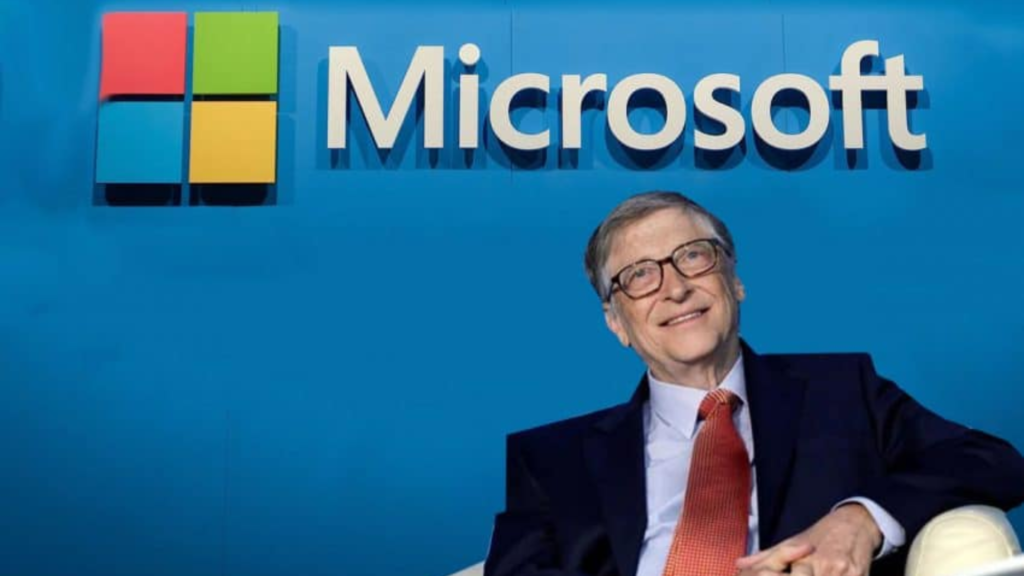Bill Gates Admits $400 Billion Mistake That Changed Microsoft’s Fate!

Bill Gates recently admitted that his “greatest mistake ever” cost Microsoft $400 billion, referring to the company’s failure to secure a dominant position in the smartphone market. Gates revealed that Microsoft’s inability to compete with Apple and Google’s Android led to a missed opportunity that could have positioned Microsoft as the leading mobile platform. Despite this setback, Gates remains optimistic about Microsoft’s ongoing success, emphasizing how critical decisions shape the future in the fast-paced tech industry.
Bill Gates Reveals $400 Billion Mistake That Cost Microsoft Big
Bill Gates recently opened up about his “greatest mistake ever,” which he claims cost Microsoft a staggering $400 billion. Gates, who co-founded Microsoft in 1975 with his childhood friend Paul Allen, helped build the software giant into one of the most successful companies in history. By 1986, just four years after the company’s inception, Microsoft surpassed $1 million in sales and went public. Today, Microsoft is valued at nearly $3 trillion, and Gates, once the world’s richest person, continues to have a net worth of around $103.8 billion, according to Forbes.

Credits: gadgets360
Bill Gates Admits $400 Billion Mobile Market Missed Opportunity
Despite his success, Gates recently admitted to a significant misstep during a conversation with Eventbrite CEO, Julia Hartz, at an event hosted by venture firm Village Global. During the discussion, Gates revealed that his mistake, which occurred in the early days of smartphone development, resulted in Microsoft missing a huge opportunity in the mobile market—one that would have been worth $400 billion.
Credits: villageglobal
Microsoft’s $400B Mistake: Losing Out to Android in the Mobile Market
The error, according to Gates, was Microsoft’s failure to secure the second-place spot in the smartphone market, behind Apple. In the tech industry, platforms like operating systems often follow a “winner-takes-all” model, meaning that once a market leader establishes dominance, it becomes nearly impossible for competitors to catch up. Gates explained, “The greatest mistake ever is the mismanagement that caused Microsoft not to be what Android is today.” In other words, Microsoft had a prime opportunity to become the dominant non-Apple phone platform but lost that chance to Google’s Android.
App Ecosystem: How Microsoft Missed a $400B Opportunity
Gates went on to explain how the tech market works, particularly in the software world: “If you’re there with half as many apps or 90 percent as many apps, you’re on your way to complete doom.” He emphasized the importance of having a significant app ecosystem to succeed in the mobile market. According to Gates, if Microsoft had managed to secure that position, it could have easily transferred $400 billion from Google to Microsoft, a sum representing the vast value of the Android platform today.
Credits: Business Insider
Missed Timing: How Microsoft Fell Behind Apple and Android
The timeline of events further highlights the missed opportunity. Apple released its iPhone in 2007, which immediately set the standard for smartphones. Google followed with its Android-based operating system in 2008. However, Microsoft didn’t release its Windows Phone 7 until October 2010, by which point Apple and Android already dominated the market with an overwhelming 99.9 percent of the global market share.
Gates Reflects: Microsoft Could Have Dominated the Mobile Market
Despite this, Gates remains optimistic about Microsoft’s current position. He acknowledges that the company is still a leader in the tech world, but he also recognizes that securing the mobile market would have cemented Microsoft’s place as the top technology company, far surpassing its competitors. Gates himself admits that if Microsoft had succeeded in the mobile space, “we would be the company,” referring to its potential to dominate the smartphone market.
Gates’ reflection on this mistake underscores the high stakes in the tech industry and the sometimes crucial decisions that can shape the future of a company. Even though Microsoft remains a global powerhouse, this misstep stands as a painful reminder of how quickly the technology landscape can shift and the opportunities that can slip away.






